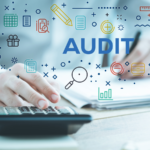Reliable audit evidence forms the basis for auditors’ assessments, conclusions, and opinions. It is crucial to ensure the credibility and objectivity of the evidence gathered during the audit process. This section examines the key characteristics that auditors look for in audit evidence to ensure its reliability and effectiveness. By understanding these characteristics, auditors can make informed judgments and provide stakeholders with assurance on the accuracy and fairness of financial statements.
- Relevance
Relevance is a fundamental characteristic of reliable audit evidence. The evidence should be directly related to the financial assertions being tested. It should provide information that is pertinent to the audit objectives and assists in addressing specific risks and assertions. Relevant evidence helps auditors evaluate the fairness of financial statements, assess the existence and completeness of transactions, and support their conclusions.
- Sufficiency
Sufficiency refers to the quantity of audit evidence. It is important to gather enough evidence to provide reasonable assurance regarding the financial statements. Auditors need to consider the nature and complexity of the client’s operations, the assessed risks, and the materiality of the assertions being tested. Sufficient evidence ensures that auditors have gathered enough information to support their conclusions and opinions.
- Appropriateness
Appropriateness is the measure of the quality and reliability of audit evidence. The evidence should be reliable and trustworthy, capable of providing a reasonable basis for the auditor’s conclusions. Several factors determine the appropriateness of evidence, including the source, independence, and objectivity of the information. For example, evidence obtained directly from external parties or independent sources is generally considered more appropriate than evidence generated internally.
- Reliability
Reliability is a critical characteristic of audit evidence. It ensures that the evidence is trustworthy, accurate, and free from bias or manipulation. Reliability can be assessed by considering the source of the evidence, the consistency of information across multiple sources, and the controls in place to safeguard the reliability of the evidence. For instance, evidence obtained from reliable third-party sources, such as bank statements or external confirmations, is considered more reliable than information generated internally.
- Independence
Independence is an essential characteristic of reliable audit evidence. The evidence should be free from undue influence or bias that may compromise its objectivity. Auditors strive to obtain evidence from independent sources that are not directly involved in the preparation or presentation of the financial statements. Independence enhances the credibility and reliability of the evidence, reducing the risk of misstatements or manipulation.
- Completeness
Completeness ensures that all necessary information has been 壯陽藥 considered and included in the audit evidence. Auditors need to gather evidence that covers all relevant aspects of the assertions being tested. This includes considering both positive and negative evidence, as the absence of expected evidence can also be informative. Auditors should exercise professional judgment to ensure that the evidence collected provides a comprehensive view of the financial statements.
Conclusion
The characteristics of reliable audit evidence are essential for auditors to form accurate conclusions and opinions on financial statements. Relevance, sufficiency, appropriateness, reliability, independence, and completeness are key considerations when evaluating the quality and effectiveness of audit evidence. By ensuring that the evidence meets these characteristics, auditors can provide stakeholders with assurance regarding the credibility, fairness, and transparency of the financial statements.




